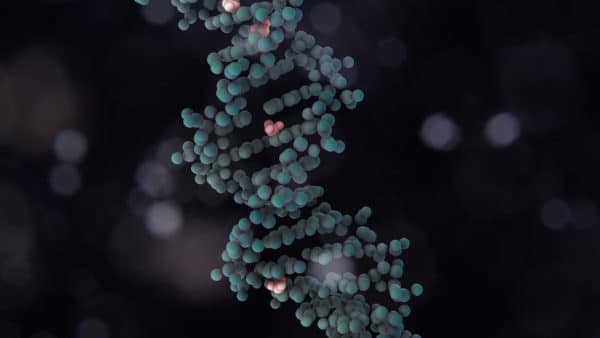HOME > Autoimmune > Should You Avoid Eggs? The Scientific Deep Dive
Should You Avoid Eggs? The Scientific Deep Dive
By Ritamarie Loscalzo

Eggs are often touted as “nature’s perfect food” due to their balanced amino acid profile. They are indeed a very popular food. It’s estimated that the average American will eat 289 eggs in 2020. I don’t eat any, and millions of people on plant-based diets don’t eat any either, so many people eat a lot more than that!
Eggs may not be as healthy as many people think they are, and it’s not because of their cholesterol content, which is a hotly debated topic. I usually recommend that my clients and patients eliminate eggs from their diets. I personally have been avoiding eggs for about 35 years now, as they give me an excruciating headache.
In this article, I will discuss the pros and cons of eggs, and provide a scientific deep dive on when and why eggs should be avoided.
Eggs: the Cons
Many people who come to me experience some degree of leaky gut, which can manifest not only in gut symptoms but also as fatigue, hormone imbalances, brain fog, mood issues, skin problems, pain, allergies, and autoimmunity. For these people, it is important to remove specific foods to allow their gut lining can heal.
May increase cancer risk
Although eggs can be a nutritious and versatile source of complete proteins, there’s growing evidence that animal protein is inferior to plant protein and may cause cancers by increasing insulin growth factor 1 (IGF1)1. IGF1 is a hormone that stimulates cell division and growth in both healthy and cancer cells. High IGF1 levels has been consistently associated with increased cancer risk, proliferation, and malignancy2,3.
Activates the immune system
Many egg proteins are immunogenic- meaning they can potently activate an immune response in th body. Of around 148 proteins found in eggs, 4 proteins can strongly activate the immune system. These include ovomucoid, ovalbumin, ovotransferrin and lysozyme in egg whites, and chicken serum albumin and YGP42 in egg yolks4.
Ovalbumin, which is 58% of total proteins in egg whites, is typically used to activate the immune system in immunology studies.
Not surprisingly, egg allergy is the second most common food allergy in children after dairy5. It’s a known trigger of skin itching, eczema, bronchial asthma, vomiting, allergies, edema, hives, and anaphylaxis reactions6. Children who are allergic to eggs are also more likely to become allergic to environmental allergens7. There is no cure for egg allergy other than avoiding it, and pediatricians expect children to “outgrow” their food allergies. Egg yolk allergies tend to affect adults more than children, although the symptoms are similar8.
Some egg allergies are mediated by IgE, which is what doctors test for to identify allergies. However, eczema and some gut inflammation symptoms due to eggs are not mediated by IgE, so they are more like food sensitivities. These may not come up in allergy tests but are usually diagnosed through elimination-challenge. In over 10% of children, when they eat eggs after omitting them for a long time, the eczema flares happen in about 16 hours after the egg consumption9.
Although it is believed that egg allergies are found in children and rare in adults, adults do develop egg allergies. In a large Chinese study involving 39813 subjects, about 10% of them test positive for egg white allergies10.
Causes leaky gut
These proteins are protease inhibitors, which inhibit protein-digesting enzymes, causing the gut to release more enzymes to the point that the enzymes start chewing up tight junctions between the gut lining cells11. This also means that certain egg proteins can be absorbed intact, allowing them to activate further immune responses throughout the body12-14.
When injected in the skin, raw egg whites trigger histamine release even in animals that are not allergic to eggs15. If raw egg whites trigger histamine release from immune cells in the gut, it could worsen leaky gut16. Many people with inflamed gut lining often have trouble breaking down histamines, so the increased histamine in the blood may worsen pain, brain fog, and fatigue, in addition to other allergic symptoms17,18.
Lowers biotin absorption
Biotin is an important B vitamin for hair, skin, and nails. Raw egg whites contain high levels of avidin, which binds to biotin and makes it unavailable for absorption. Cooking eliminates some but not all avidin19. Fortunately, egg yolks are a good source of biotin19.
Eggs: the Pros
There are many reasons eggs could be a healthy food for some people, including:
Complete protein
A large hen’s egg contains about 6.3 grams of complete protein, which is rich in essential amino acids20. However, most people eat an adequate amount of protein, and there are many plant based proteins that don’t have the downsides of eggs.
Vitamins and antioxidants
Eggs, especially free-range ones, contain decent amounts of vitamin A, vitamin D, folate, vitamin B12, selenium, and antioxidants. If the chickens are fed higher-carotenoid feeds, the egg yolks will be in deeper shades of orange and contain higher levels of carotenoids, such as lutein and zeaxanthin21,22. While egg carotenoids might be more easily used and absorbed than carotenoids from other sources23, eggs aren’t the only sources of lutein or zeaxanthin. Both are abundant in squash, peas, dark leafy greens, asparagus, carrots, broccoli, kiwi, grapes, and many more fruits and vegetables. Eggs contain lutein and zeaxanthin because chickens eat plants.
Phospholipids
Phospholipids, such as phosphatidylcholine, are important for cell membranes, methylation neurotransmitters, and immune function. Based on mouse studies, some egg phospholipids may reduce inflammation from leaky gut24. However, some gut bacteria can convert excess dietary phospholipids and carnitine into a very inflammatory substance called trimethylamine-N-oxide (TMAO), which contributes to hardening of the arteries and heart disease25.
A large clinical study published in Nature found that meat-eaters have more TMAO-producing bacteria than plant-based eaters, possibly because of the carnitine levels in meat26. Consuming more than two eggs daily can significantly increase blood TMAO levels27. Therefore, it may be safer to get phospholipids from plant-based sources, such as sunflower and sunflower lecithin, and focusing your diet on plant-based foods.
Interestingly, while egg consumption may not have a clear association with cardiovascular disease or deaths from it, it may be associated with type 2 diabetes or other comorbid conditions28,27.
Increases HDL cholesterol
An egg has 186 milligrams of cholesterol, which makes it look like a high cholesterol food. However, the 300 mg/day cholesterol limit recommendation has now been removed29. Some studies suggest that when people eat 1 – 3 eggs per day, their good cholesterol (HDL) goes up more than their bad cholesterol (LDL), presumably lowering their cardiovascular risk30,31. However, cardiologist Joel Kahn shares research that suggests that there is other research that has not been made public that suggests there is a link to cardiovascular disease32.
Should you cut out eggs?
If you are working to heal your gut and resolve chronic inflammation, it is important to heal your gut by eliminating gut irritants and foods that provoke an immune response. This means eliminating proteins that could be absorbed whole through the gut and activate your immune system, such as lectins and eggs. Consider removing eggs and any foods that may contain them if you have the following symptoms:
- Digestive problems
- Hormone imbalances
- All skin problems, especially eczema
- Asthma
- Allergies
- Post-nasal drips
- Hormone imbalances
- Insulin resistance
- Autoimmune diseases
- Fatigue
- Brain fog
- Pain
Although eggs are a nutrient dense food, it is possible to obtain these nutrients from other sources, such as vitamins and antioxidants from vegetables, and phospholipids (lecithin) from sunflower. If you re-introduce eggs after about a month and experience worsened symptoms, then this will affirm to you that the benefits of eliminating eggs exceed the inflammation you are getting from it.
Not all foods advertised as healthy are healthy. Everyone is different. The key is to be aware of how foods affect your health so that you can make choices that will result in vitality and health.
Want to learn more about foods that are proven to heal and balance the body? Check out my FREE Kitchen Herbalism training.
In this training, I share with you the top, readily available herbs and spices that can help bring your body, hormones, organs, and glands back into balance.
References:
1. Campbell, C. T. Dietary protein, growth factors, and cancer. Am. J. Clin. Nutr. (2007).
2. Kleinberg, D. L., Wood, T. L., Furth, P. A. & Lee, A. V. Growth hormone and insulin-like growth factor-I in the transition from normal mammary development to preneoplastic mammary lesions. Endocrine Reviews vol. 30 51–74 (2009).
3. Allen, N. E. et al. The associations of diet with serum insulin-like growth factor I and its main binding proteins in 292 women meat-eaters, vegetarians, and vegans. Cancer Epidemiol. Biomarkers Prev. 11, 1441–1448 (2002).
4. Andersen, C. J. Bioactive egg components and inflammation. Nutrients vol. 7 7889–7913 (2015).
5. Caubet, J. C. & Wang, J. Current Understanding of Egg Allergy. Pediatric Clinics of North America vol. 58 427–443 (2011).
6. Dhanapala, P., De Silva, C., Doran, T. & Suphioglu, C. Cracking the egg: An insight into egg hypersensitivity. Molecular Immunology vol. 66 375–383 (2015).
7. Nickel, R. et al. Sensitization to hen’s egg at the age of twelve months is predictive for allergic sensitization to common indoor and outdoor allergens at the age of three years. J. Allergy Clin. Immunol. 99, 613–617 (1997).
8. de Maat-Bleeker, F., van Dijk, A. G. & Berrens, L. Allergy to egg yolk possibly induced by sensitization to bird serum antigens. Ann. Allergy 54, 245–8 (1985).
9. Breuer, K. et al. Late eczematous reactions to food in children with atopic dermatitis. Clin. Exp. Allergy 34, 817–824 (2004).
10. Luo, W. et al. Allergen sensitization pattern of allergic adults and children in southern China: a survey based on real life data. Allergy, Asthma Clin. Immunol. 15, 42 (2019).
11. Ryan, C. A. Protease Inhibitors in Plants: Genes for Improving Defenses Against Insects and Pathogens. Annu. Rev. Phytopathol. 28, 425–449 (1990).
12. Jahan-Mihan, A., Luhovyy, B. L., Khoury, D. El & Harvey Anderson, G. Dietary proteins as determinants of metabolic and physiologic functions of the gastrointestinal tract. Nutrients vol. 3 574–603 (2011).
13. Yokooji, T., Hamura, K. & Matsuo, H. Intestinal absorption of lysozyme, an egg-white allergen, in rats: Kinetics and effect of NSAIDs. Biochem. Biophys. Res. Commun. 438, 61–65 (2013).
14. Yokooji, T., Nouma, H. & Matsuo, H. Characterization of ovalbumin absorption pathways in the rat intestine, including the effects of aspirin. Biol. Pharm. Bull. 37, 1359–1365 (2014).
15. Schachter, M. & Talesnik, J. The release of histamine by egg?white in non?sensitized animals. J. Physiol. 118, 258–263 (1952).
16. Forbes, E. E. et al. IL-9- and mast cell-mediated intestinal permeability predisposes to oral antigen hypersensitivity. J. Exp. Med. 205, 897–913 (2008).
17. Obara, I., Telezhkin, V., Alrashdi, I. & Chazot, P. L. Histamine, histamine receptors, and neuropathic pain relief. British Journal of Pharmacology vol. 177 580–599 (2020).
18. Theoharides, T. C., Stewart, J. M. & Hatziagelaki, E. Brain ‘fog,’ inflammation a nd obesity: Key aspects of neuropsychiatric disorders improved by luteolin. Front. Neurosci. 9, (2015).
19. Durance, T. D. Residual Avid in Activity in Cooked Egg White Assayed with Improved Sensitivity. J. Food Sci. 56, 707–709 (1991).
20. Lewis, J. C., Snell, N. S., Hirschmann, D. J. & Fraenkel-Conrat, H. Amino acid composition of egg proteins. J. Biol. Chem. 186, 23–35 (1950).
21. Blesso, C. N., Andersen, C. J., Bolling, B. W. & Fernandez, M. L. Egg intake improves carotenoid status by increasing plasma HDL cholesterol in adults with metabolic syndrome. Food Funct. 4, 213–221 (2013).
22. Karadas, F., Pappas, A. C., Surai, P. F. & Speake, B. K. Embryonic development within carotenoid-enriched eggs influences the post-hatch carotenoid status of the chicken. Comp. Biochem. Physiol. – B Biochem. Mol. Biol. 141, 244–251 (2005).
23. Chung, H.-Y., Rasmussen, H. M. & Johnson, E. J. Lutein Bioavailability Is Higher from Lutein-Enriched Eggs than from Supplements and Spinach in Men. J. Nutr. 134, 1887–1893 (2004).
24. Tokés, T. et al. Protective effects of a phosphatidylcholine-enriched diet in lipopolysaccharide-induced experimental neuroinflammation in the rat. Shock 36, 458–465 (2011).
25. Tang, W. H. W. et al. Intestinal microbial metabolism of phosphatidylcholine and cardiovascular risk. N. Engl. J. Med. 368, 1575–1584 (2013).
26. Koeth, R. A. et al. Intestinal microbiota metabolism of l-carnitine, a nutrient in red meat, promotes atherosclerosis. Nat. Med. 19, 576–585 (2013).
27. Miller, C. A. et al. Effect of egg ingestion on trimethylamine-N-oxide production in humans: A randomized, controlled, dose-response study. Am. J. Clin. Nutr. 100, 778–786 (2014).
28. Shin, J. Y., Xun, P., Nakamura, Y. & He, K. Egg consumption in relation to risk of cardiovascular disease and diabetes: A systematic review and meta-analysis. Am. J. Clin. Nutr. 98, 146–159 (2013).
29. Soliman, G. A. Dietary cholesterol and the lack of evidence in cardiovascular disease. Nutrients vol. 10 (2018).
30. Schnohr, P. et al. Egg consumption and high?density?lipoprotein cholesterol. J. Intern. Med. 235, 249–251 (1994).
31. Mutungi, G. et al. Dietary Cholesterol from Eggs Increases Plasma HDL Cholesterol in Overweight Men Consuming a Carbohydrate-Restricted Diet. J. Nutr. 138, 272–276 (2008).
32. Kahn, J. Eggxitement About Eggs is Overstated: Health Warnings to Heed. (2018). https://www.drjoelkahn.com/eggxitement-about-eggs-is-overstated-health-warnings-to-heed/ Last accessed: 13/16/2020
Share this:

Are you feeling stuck?
Do you feel as if something is missing from your practice that's keeping you from delivering breakthrough outcomes for your clients?.
Recent Posts
Our Programs
Nutritional Endocrinology Practitioner Training (NEPT)
The Mastery and Certification tier is our flagship program and provides everything you need to feel confident as a practitioner who knows how to get results that lead to healthy and happy clients.
Functional Assessment Mastery
Explore the relationships between the most important hormones and their relationship with nutrition.
Functional Nutrition Mastery
Learn how to support your clients to eat and supplement in a way that reduces and eliminates chronic symptoms.
Medical Disclaimer: The information on this website is not intended to replace a one-on-one relationship with a qualified health care professional and is not intended as medical advice. It is intended as a sharing of knowledge and information from the research and experience of Dr. Ritamarie Loscalzo, drritamarie.com, and the experts who have contributed. We encourage you to make your own health care decisions based upon your research and in partnership with a qualified health care professional.
Disclosure: Sometimes (but not always), when I share resources in my programs, newsletter, and on my website, I'm using an affiliate link, which means I do make money if you buy. My credibility is extremely important to me; therefore, I only endorse the products, services, and people I believe in. DrRitamarie.com is independently owned and the opinions expressed here are my own.
Click here to see our Privacy Policy.












I’m with you on the eggs as I have sibo and don’t tolerate eggs I’m having a lot of trouble digesting protein not sure what to eat
Great question, Gina. It’s great that you are aware of which foods are tolerated by your immune system. Have you tried protein powder? It is very easily digested because it has been broken down more than cooked or raw proteins found in whole foods. This might help until you solve the underlying cause of protein malabsorption.
Hi Dr.Ritamarie!!! Last month I purchased a beautiful pkg plan to help me find my sweet spot! I never even used any of the info because my computer cashed just days after I bought into the program. My email can be excessed through this phone…( which has been re-started just a week ago due to COVID19..Ibwant to read, learn and work that program ( with many benefits) but what can we do???
Hi Mitch. We are sorry to hear about your computer troubles! The program is still online for you to access from any device that you can. Our email invitations for the calls will still land in your inbox. If you need any assistance, please write to our client care team: helpdesk@drritamarie.com